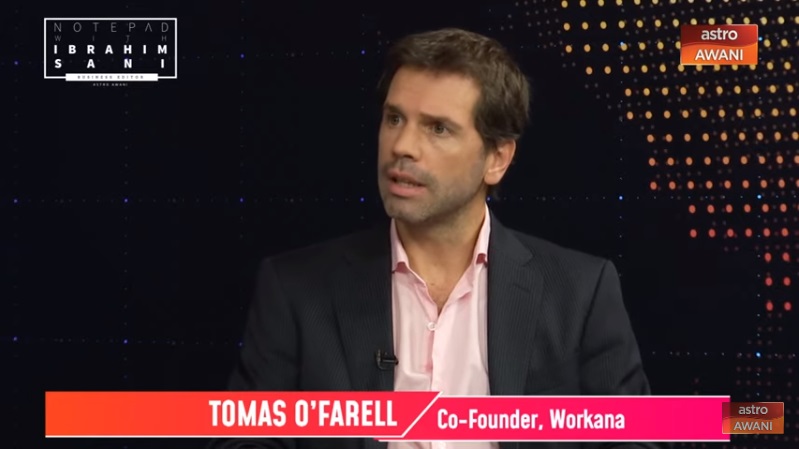Less than one year after starting operations in Asia, we’ve already had the chance to exchange our views about freelancing work with Petronas, Malaysia’s leading gas infrastructure and centralized utilities company, and one of the seven most influential oil companies around the world, employing almost fifty thousand people.
At Workana we keep showing both small enterprises and large corporations likewise, that the freelancing work model might be the best solution to face the challenges of the work market, and today we’d like to share this big step with you.
Why have we resolved to expand from Argentina into Asia?
When we decided to search for new growth opportunities, Asia came up as the ideal option since the market was, in many senses, very similar to that of Latin America. Asian companies were also facing major drawbacks to find talent with the necessary skills to stay competitive in the digital era, but at the same time, the region had a huge growth potential in the long term.
We chose Malaysia as the first country to concentrate our operations due to its high availability of freelancers, the English language penetration among its population, and the fact that it’s quite an economic region, which meant that now it would be affordable and easy for all the companies in the area to find qualified talent.
Actually, around 26% of the economically active population in Malaysia prefers to work as a full-time freelancer, and this is not because they can’t find a fixed job but because the tendency in Asia and everywhere else in the world is heading towards flexible and independent work options for professionals.
How did we manage to make Asian companies trust freelance work?

We’ve always liked to lead by example, so just as it happened when we first started off this project in Latin America, relying on independent talent, our work model in Asia also favors remote work whenever possible.
Besides, we’ve built a reliable and user-friendly platform so that both freelancers and clients can work safely and efficiently, and from the very moment we landed in Asia we’ve been focused on two main critical strategies in order to achieve our objectives:
1.- Attracting the best local freelance talent
It all starts as we lead freelancers to rely on the benefits of our platform. Since our arrival in Asia, we’ve recruited over 7,000 freelancers in the region with the most in-demand skills such as web development, programming, IOS and Android apps and big data, among others.
2.- Generating more demand
It’s also part of our job to introduce ourselves to companies and persuade them to rely on freelance talent. Ever since we arrived in Southeast Asia, companies have been eager to know more about Workana, and they’ve also wanted to learn how to work with remote teams. This is becoming a differential and we love to share how we do it.
Petronas, the Asian oil company

Following our job along with consulting firms Duke Corporate Education and Alpha Catalyst Consulting, we had the big opportunity to reach Petronas upper management, who is currently undergoing a strong training process on topics related to innovation in the digital era.
During the training session held in Putrajaya, we’ve shared our experiences working with freelancers and remote teams.
Among the many questions we’ve been asked, they wondered if we had already worked with some other large corporation and what the results were. So we could tell them about our recent success story with Unilever in South America and show them that one of the main advantages was counting on a unique provider to access a talent pool with immediate availability and a great range of areas of expertise.
Moreover, in Asia and particularly in Malaysia you can find full-time freelancers available as well as many college undergraduates with key skills who need flexible alternatives to join the work market.

Attendants from Petronas were also wondering which were the main areas covered by freelancers at Workana, which are web programming, software design, corporate design, digital and and big data analysis, among others. All of these are presented as big opportunities to encourage the oil company to work with freelance talent on several new projects.
A small sample of our success stories in Asia
We’ve already had many success stories of freelancers and projects in Asia, completed with five stars on the platform, would you like to see some of them?
Development and design of a website (Singapore / Malaysia)


Online advertising (Malaysia / Malaysia)


Banner ready for print (Thailand /The Philippines)


A few final ideas: Our Co-founder at Astro Awani

Following our list of success stories on the Asian continent, last week Tomas O´Farrerll, our co-founder, was interviewed by Ibrahim Sani for Notepad, a business and tech program from the news network Astro Awani.
One of the major topics under discussion was whether all employers today should have a mixed working model or go for freelancing 100%. This decision will always depend on corporate needs, to start with, though it’s also true that more and more workers want to access flexible schedules. Then, companies going for the traditional model are going to face increasing problems at finding new talent and escalating with in-demand skills within the digital era.
On the other hand, reliability was also discussed at length, as it has always been essential for Workana. To us, working with an unknown freelancer is somehow jumping into a Uber or a Grab owned by a stranger to drive you to your destination or staying over at a stranger’s place through Airb&b. That’s why we’re so concerned about offering trustworthiness to both parties with a set of mechanisms of mutual trust such as the escrow payment, the ranking system and the rating.
Below you can watch the full interview with Tomás:
As you can see, we’re doing great in Asia too. At this rate, it won’t be long until Workana and our freelance talent reaches everywhere in the world.





